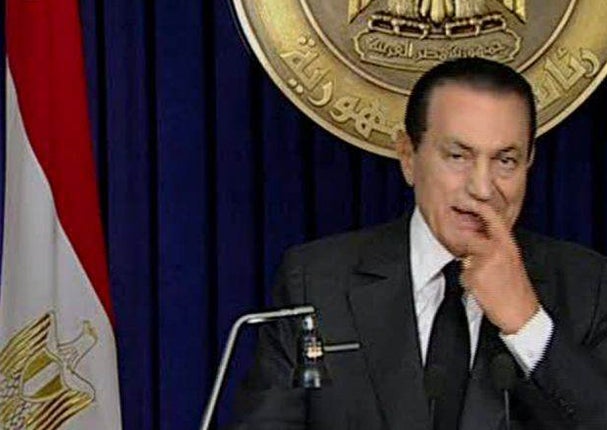The Sketch: A ruler who turned his country into a security state


Your support helps us to tell the story
From reproductive rights to climate change to Big Tech, The Independent is on the ground when the story is developing. Whether it's investigating the financials of Elon Musk's pro-Trump PAC or producing our latest documentary, 'The A Word', which shines a light on the American women fighting for reproductive rights, we know how important it is to parse out the facts from the messaging.
At such a critical moment in US history, we need reporters on the ground. Your donation allows us to keep sending journalists to speak to both sides of the story.
The Independent is trusted by Americans across the entire political spectrum. And unlike many other quality news outlets, we choose not to lock Americans out of our reporting and analysis with paywalls. We believe quality journalism should be available to everyone, paid for by those who can afford it.
Your support makes all the difference.If President Hosni Mubarak finally does go it would represent the beginning of the end for the authoritarian era in the Arab world. If he is eventually ousted it will be as important, if not more so, than the Egyptian Revolution and the overthrow of the monarchy in 1952. And it will preface one of the most critical periods of modern Egypt and the Arab world; one full of risks and possibilities. But that time was not last night.
How things have changed from when Mr Mubarak succeeded the assassinated Anwar Sadat in 1981. There was tremendous hope he would take Egypt on a different path from the inflammatory and polarising policies of the highly authoritarian Sadat era, when all kinds of political leaders were arrested.
In the first few years of his rule, Mr Mubarak (a former air force commander who built his career on the 1973 Egyptian-Israeli war) tried to distance himself from the Sadat years. He released political prisoners, engaged with all political forces and relaxed authoritarian rules. He really was a breath of fresh air.
After Mr Sadat had controversially embraced the US and Israeli world with the Camp David accords, Mr Mubarak promised to return Egypt to the Arab fold. Even though we have a peace treaty with Israel, he was saying, this shouldn't come between us.
So this was a moment that could have really transformed Egypt and Mr Mubarak's presidency. But it didn't happen. He has left Egypt a broken country economically, politically and socially.
What is his legacy as his rule comes to an end? He has broken the country's institutions. He allowed his allies from the ruling party to dominate all aspects of political life. The only institution that now has any legitimacy is the army. This is testament to the damage that was wrought by the Mubarak presidency on Egypt's institutional fabric. He has turned the country into a security state with feared and brutal security apparatus of almost 1.5 million people. What do you do with them now?
This is Egypt's tragedy, for in the first half of the 20th century it had one of the most vibrant judicial systems in the Third World. Egypt's 1923 constitution was as progressive as the US constitution. Certainly, it took many hits - but Mr Mubarak was the hammer that provided the final blow. Economically, Egypt in the 1950s and 1960s was as competitive as Japan and South Korea. Yet Mr Sadat and then Mr Mubarak brought together business and the security apparatus and bled Egypt dry.
Since 2004 there has been a 5 to 7 per cent annual growth rate, but nothing has reached the poor. More than 40 per cent of the country is living in poverty. In addition, corruption under Mr Mubarak has infiltrated every aspect of life.
This is a very proud country that used to be the jewel of the East. It's one of the oldest civilisations. Mr Mubarak has created a broken country. It's going to take decades to recover.
But Egypt is the cultural capital of the Arab world and what happens here migrates throughout the region. When Mr Mubarak goes it will change Egypt and also the Arab world. Even as he stands for another day, Arab leaders will still be reflecting on how and where they should go.
Join our commenting forum
Join thought-provoking conversations, follow other Independent readers and see their replies
0Comments